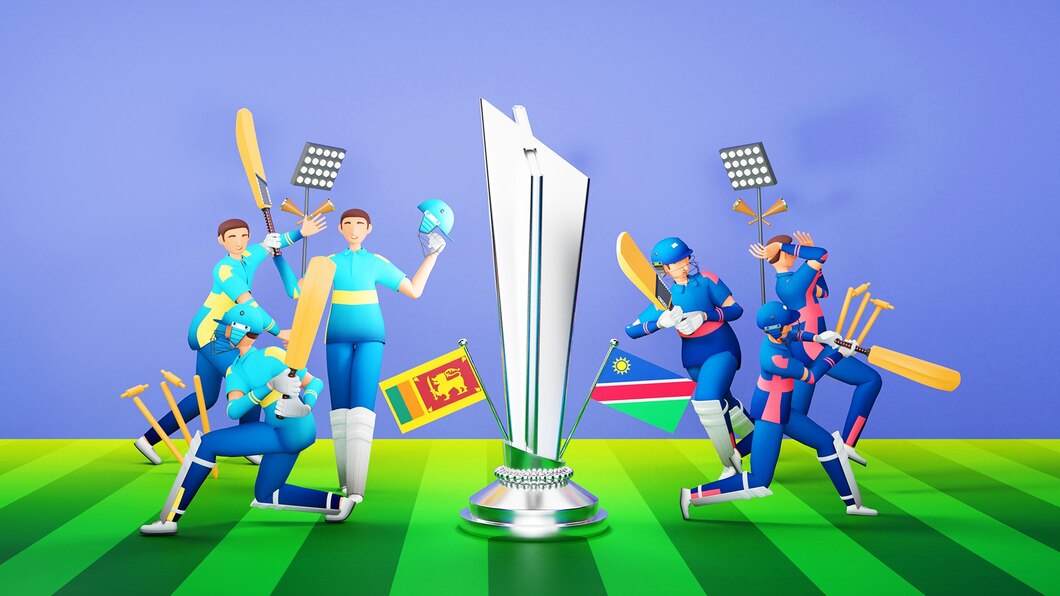Blog
The Hybrid Model for the 2025 Champions Trophy and What It Means for Cricket

In an unexpected twist, the International Cricket Council has decided to combine cricket and diplomacy with a hybrid model for the 2025 Champions Trophy. Why? To tackle the endless misunderstandings between India and Pakistan, of course.
This genius move allows all qualified teams to play without ruffling too many feathers—or egos, better said. Matches involving India will be held in Dubai, far from the prying eyes of political drama, while the rest will take place in Pakistan. Amid all this, Tiger Exchange VIP will surely have their hands full with fans analyzing this split setup.
Cricket Diplomacy: Detours, Dubai, Drama
Regarding logistical genius and cricket diplomacy, the 2025 Champions Trophy hybrid format is second to none. Really. Here’s how it’s structured:
- Host Nations: The tournament will occur in Pakistan and UAE, a collaboration highlighting cricket’s ability to transcend boundaries—even when politics tries to interfere. Pakistan retains the prestigious role of the primary host, showcasing its passion for cricket and its robust infrastructure to accommodate a global audience.
- India’s Matches: Given the icy relations between India and Pakistan, all Team India matches will be played in Dubai. This clever agreement keeps the cricket world rolling while obeying India’s government guidelines against touring Pakistan.
- Other Matches: The rest of the fixtures will unfold across Pakistan’s iconic venues, like the historic Gaddafi Stadium in Lahore and the National Stadium in Karachi. These grounds have hosted legendary matches, with Imran Khan’s victorious World Cup team inspiring generations and Shaheen Afridi’s incredible wickets leaving fans in awe.
The hybrid model smartly sidesteps any unnecessary issues, ensuring India can participate while letting Pakistan host most of the tournament. It’s a plan that keeps cricket’s story going strong—just with a fresh, modern spin.
Who would’ve imagined that cricket diplomacy would require a map and a neutral spot like Dubai? But it’s cricket—where surprises are just part of the game.
Neutral Grounds and Cricketing Showdowns
In addition to resolving pressing issues, the 2025 Champions Trophy mixed model ushers in a golden age of international cricket logistics. How is it influencing ICC events to come?
| Aspect | Details |
|---|---|
| Neutral Venues | Matches between India and Pakistan from 2024 to 2027 in ICC events will be played at neutral venues to sidestep political tensions. |
| Upcoming Tournaments | The hybrid model is set for the 2025 Women’s ODI World Cup in India and the 2026 Men’s T20 World Cup, which will be co-hosted by India and Sri Lanka, ensuring smooth participation for all teams. |
| Hosting Rights | Pakistan proudly retains hosting rights for the 2028 Women’s T20 World Cup. However, matches involving India will be played at neutral venues to maintain peace. |
This hybrid format isn’t the first time cricket has adjusted its rules for the sake of peace. Remember the 2007 ICC World T20? India and Pakistan faced off in an intense final in Johannesburg, a neutral ground with millions of fans on their screens.
Fast-forward to now, and Dubai is stepping up as the Switzerland of cricket, hosting some epic matches while the actual hosts cheer from their home grounds. Former ICC chairman Ehsan Mani once mentioned, “Cricket thrives where diplomacy dares not tread.”
Logistics, Lucre, and Loyal Fans
The hybrid model for the 2025 Champions Trophy could be seen as a diplomatic success, but making it happen will be a challenge. Finding the right balance between geopolitics, financial interests, and what fans expect isn’t just about having a good plan; it takes flawless execution.
- Logistics: Sorting out teams, officials, and equipment between Pakistan and Dubai really needs some careful timing. Having back-to-back matches in different countries might really put a strain on player fitness and mess with the broadcasting schedules. The ICC needs to take care of visa processes and make sure that transit between venues is secure.
- Financial Implications: Bringing big matches to Dubai could really put Pakistan on the map internationally, but it might also hit local revenues hard, especially since the PCB has poured a lot into upgrading its venues. Using shared revenue models will really help balance out any possible losses.
- Fan Engagement: Dubai has pulled off some exciting India-Pakistan matches in the past, but not having games in the usual home venues might leave local fans in Pakistan feeling a bit let down. Fan zones, interactive events, and community outreach in both countries could help.
Even with these challenges, the combined format is an exciting move to ensure everyone can be included and take part in cricket’s global events. The ICC’s approach to tackling these challenges will really shape how the 2025 Champions Trophy turns out and could also pave the way for future tournaments.
Conclusion
The ICC’s choice to introduce this hybrid masterpiece for the 2025 Champions Trophy feels a bit like fixing a leaky boat with duct tape. It may not be flawless, but hey, it gets the job done. The ICC manages to keep the cricketing carnival going by carefully navigating politics and trying to keep everyone happy—well, almost everyone.
It’s a logistical nightmare, but who needs sleep when you’re busy handling diplomacy? This setup shows that cricket can withstand just about anything, even the ups and downs of geopolitics. Fingers crossed, this fun little fix sets the standard for tournaments!
